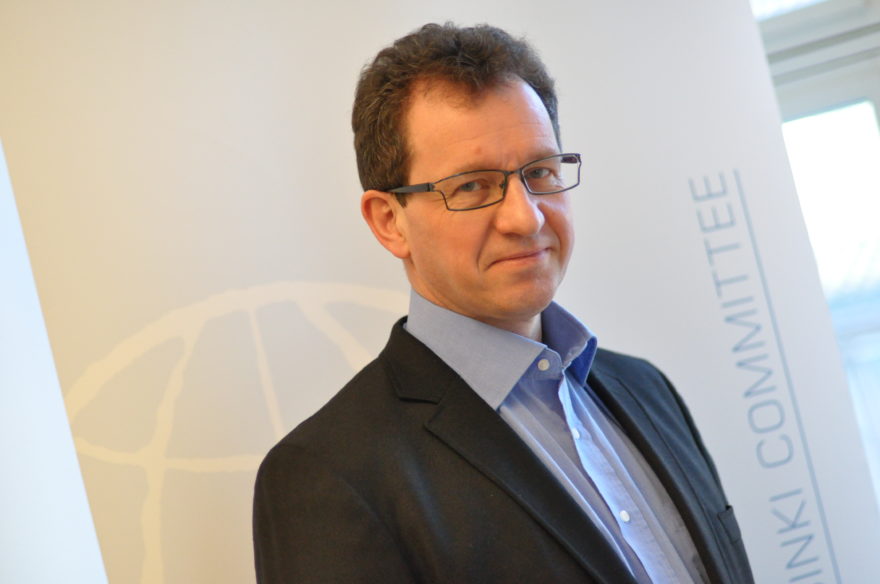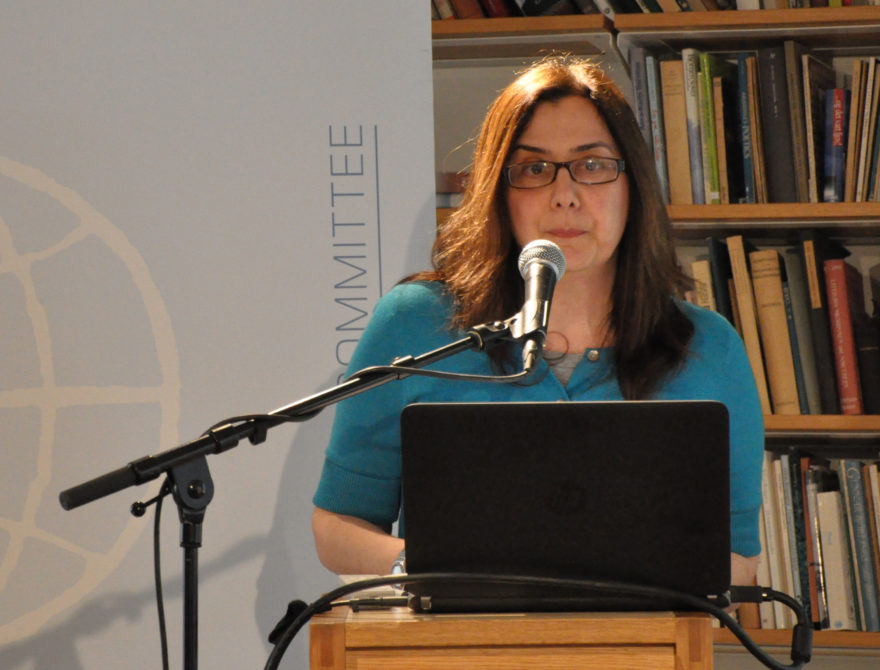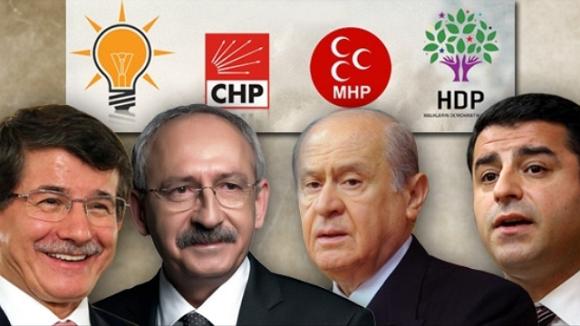– Also for the first time, a party reflecting the Kurdish political movement will be represented in the Parliament, giving hope for continuation of the peace process. The Parliament will include more women, and be more diverse in terms of religious and ethnic identity than any previous Parliament, Ekeløve-Slydal continued.
In the new Parliament, Erdogan’s party (AKP), will have 258 of 550 seats, 18 fewer than it requires for a majority, and far less than the 330 it needs to initiate a referendum on Constitutional amendments to increase the power of the President. The Republican People’s Party (CHP) will be the second largest party, as in the previous Parliament, polling around 25% of the vote (132 seats). In third place is the Nationalist Movement Party (MHP) on 16.5% (80 seats), with the People’s Democratic Party (HDP) in fourth place with about 13% (80 seats).
-The elections results are positive in the sense that the new Parliament will be more representative of the different sentiments of the people than the previous Parliament, said Mine Yildirim, Head of the Norwegian Helsinki Committee Freedom of Religion and Belief Initiative. Because of the high threshold for Party representation (10 %), large parts of the population are excluded from being represented. The fact that HDP passed the threshold, remedies this to a certain degree. Another gain has been the high level of engagement by the population in the elections. The voter turnout was 83%. This can be indicative of an overwhelming trust in change through democratic means.

According to international elections observers, organised by the OSCE Office of Democratic Institutions and Human Rights (OSCE ODIHR), even though the elections were professionally organised, there were several concerns related to fairness:
- “Media freedom is an area of serious concern, with media outlets and individual journalists critical of the ruling party being subject to pressure and intimidation during the campaign”;
- “the campaign was tainted by a high number of attacks on party offices and serious incidents of physical attacks, some resulting in fatalities”;
- “greater transparency in the election administration would increase trust in the electoral process”;
- “Several Supreme Board of Elections decisions were inconsistent with legislation, including in relation to campaigning and election administration, and the lack of judicial review of those decisions challenges the separation of powers and prevents access to judicial remedy in election matters”;
- “The President played an active role in the election campaign, even though the constitution obliges him to be non-partisan, attending an extraordinary number of public events, which were used as opportunities to campaign in favour of the ruling party and to criticize opposition figures”.
Read more from the international election observers here.
According to the Constitution, it is now up to the President to ask a party, or a coalition of parties, to form a new government. – It will be a test for President Erdogan, whether he is able to adapt to the new political situation and play a constructive role in ensuring that a new government will be in place as soon as possible, said Ekeløve-Slydal. He should interpret the elections results as a signal that people want a Government, and a President, that prioritize democratic values, and are able and willing to engage in dialogue rather than forcing their will on the opposition and on minorities.
The new Parliament will be the most diverse in the history of the Turkish Republic. While still not an adequate number, it is yet a record to have 96 women in the Parliament (almost one fifth). In addition, four Christians (out of which three are Armenians), one member of the Roma community, one member of the Yezidi community, and two persons with disabilities have been elected. Finally yet importantly, for the first time, a Kurdish based party is represented. – For the future of Turkey’s democracy, the new Parliament should lower the threshold for parties to enter the Parliament, said Yildirim. The 10 % threshold is higher than in other democratic countries, and results in a Parliament, which does not reflect the diversity of political views in the population.
Yildirim underlined that the people have chosen not to give a single party the power to form a Government, thus signalling a desire for cooperation and compromise between parties of different political views. This “will” contrasts strongly with the current polarized way of dealing with issues. – For Turkey’s human rights record to improve, it is vital that there is democratic stability so that reforms can be realized. The days to come will present many opportunities and threats and it is going to be up to the new Parliament, the new Government and the President to unite around the interests of the people of Turkey, she concluded.

Background
The 2015 Parliamentary Elections were seen as decisive by observers, its results either allowing or denying the AKP the right to define future characteristics of the Turkish political system. The Norwegian Helsinki Committee shared a range of concerns related to recent developments in the country, aired by a number of observers, civil society groups, media commentators, etc. including:
- Attacks on media freedom by the authorities by i.a. initiating a large number of legal actions against journalists and editors exposing and criticizing government actions and abuse. A respected group of editors and journalists, establishing Platform 24, underlined the seriousness of the threat against independent reporting. In a statement they said: “… in the run-up to Turkey’s June 7 election the nation’s press is being strong-armed to the extent that we now ask ourselves whether a substantial victory for the ruling Justice and Development (AK Party) will not mean the further elimination of the right and ability of journalists to report the news. Read the statement in full here
- Failure of Erdogan, both previously as Prime Minister and as President, to initiate dialogue with Gezi-protesters and other critics on shortcomings of Turkey’s democratic system, including police violence against peaceful protests, political influence on the judiciary, and extremely polarized political discourse;
- The risk of undue concentration of power if AKP succeeded in amending the Constitution to strengthen the President’s executive power, and further stifling of dissent and criticism.
The Norwegian Helsinki Committee Initiative on Freedom of Religion or Belief documented in a series of reports and policy briefs that Turkey lacks a principled human rights based approached to this fundamental freedom, advocating that the government needs to take steps in line with Turkey’s international human rights obligations to remedy the situation. These reports and policy briefs are available here.
